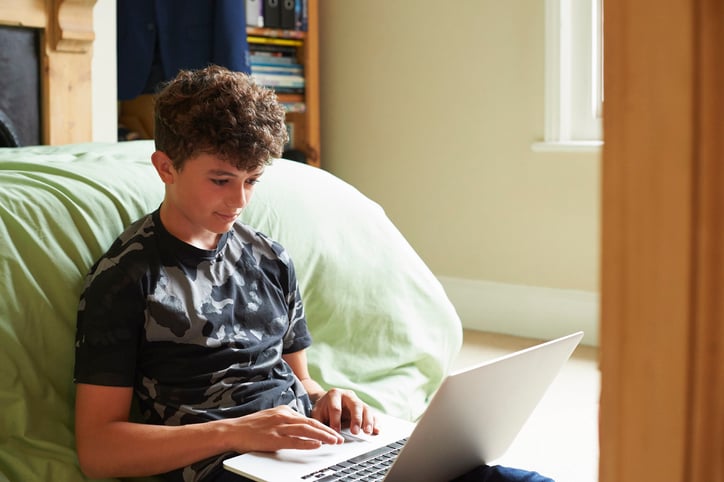How to tell if your child is being cyberbullied and what you can do to help.
As the number of devices, apps and social media sites that our children use continues to grow, so do our concerns about their safety.
With its many facets, cyberbullying is one of the biggest concerns for parents today. According to the UK’s Department for Education, “most children have been involved in cyberbullying in some way, either as a victim, perpetrator, or bystander.”
To combat this growing concern, we have put together a First-Aid Checklist to help you determine if your child is being cyberbullied and what you can do to stop it.
Signs Your Child Is Being Cyberbullied:
- Your child is upset after using the internet or their mobile phone.
- They are unwilling to share their online and phone activities or actively try to hide them.
- Change in usage habits – they are using their phone or the internet much more often or much less than usual.
- They avoid going to school or attending other social situations.
- You notice them withdrawing from family and friends.
- They have unexplained anger or depression, especially after going online.
- They have trouble sleeping.
- They have unexplained weight loss or gain.
- They display low self-esteem.
- They have experienced suicidal thoughts or have attempted suicide.

What to Do If Your Child Is Being Cyberbullied:
- Instruct your child not to respond to any cyberbullying messages. Instead, save and print all the messages and the email address or username of the cyberbully.
- Be supportive. Cyberbullying can be a traumatising experience and your child needs to know it is not their fault.
- Keep an open dialogue about online and social media usage. Explain to your children the dangers of talking to people they don’t know, sharing personal information, sharing their location and sharing pictures of themselves. Create a set of guidelines and rules so your child knows exactly what is and what is not acceptable to share.
- Understand how your child communicates. Keep up-to-date with the social media sites and apps they are using and familiarise yourself with the privacy settings and parental controls. Ensure your child knows how to use the privacy settings and that they are not accidentally sharing personal information.
- Keep the computer in a visible area in the home, such as the kitchen or sitting room, so you can monitor their online usage.
- Talk to your childminder and let them know if they need to monitor your child’s online usage.
- If you discover someone making inappropriate contact with your child (such as sexual chat or trying to meet them) contact the Online Child Exploitation Across New Zealand (OCEANZ).
What to Do If Your Child Is the Cyberbully
- Talk to your child and calmly discuss what events or emotions are causing them to say or share unpleasant things online.
- Explain the severity and permanence of their actions. Once something has been shared online, there is no going back.
- Monitor their online behaviour.
- Create a set of guidelines that will help your child decide if the content they are sharing to get ‘likes’ or ‘shares’ has the potential to cause offence to someone else. If there is a possibility that the content they want to share is offensive, they should not share it.
- Discuss regularly what is acceptable online behaviour. Your child should understand that their online behaviour can have real and serious offline consequences.
- If their cyberbullying behaviour continues, restrict access to their preferred social media and online sites. But be warned that an outright ban of devices and social media may cause them to find other secretive ways to go online.
- Talk to your child’s school or a health professional to get ahead of the issue and come up with a plan to stop the cyberbullying behaviour.
Children experiencing cyberbullying, bullying or negative thoughts can contact Kidsline.
Read Next: 6 Tips to Monitor Teens and Social Media
Read Next: Are You Scared of Your Child?
Read Next: 7 Things Tutors Should Never Do
